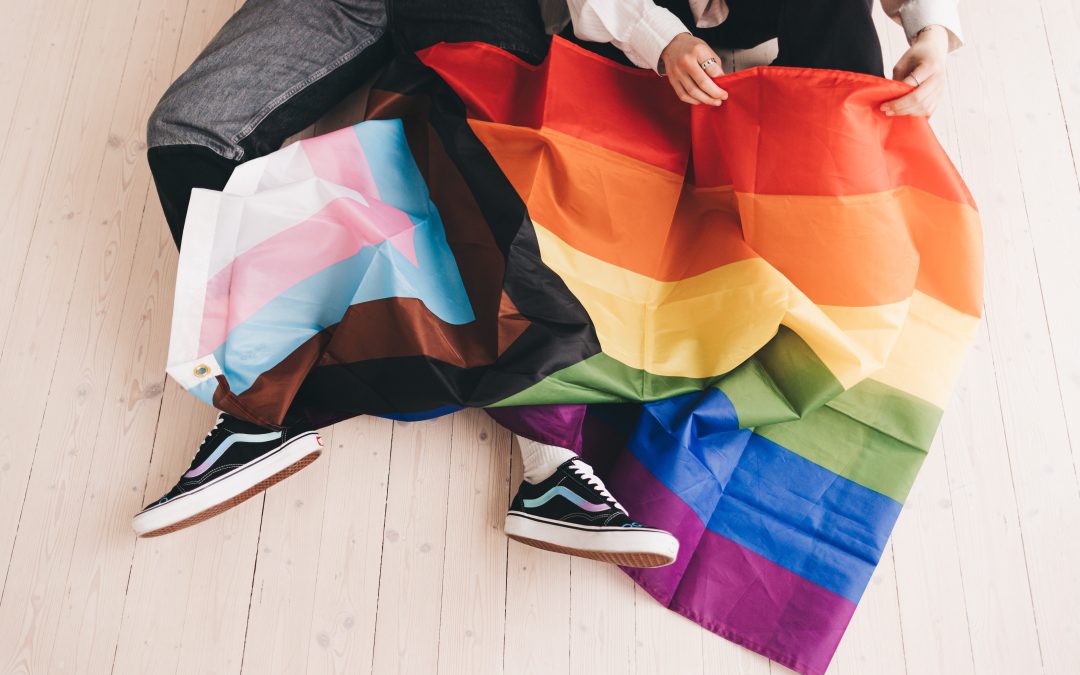The anonymous grade 10 student who wrote the following poem sometimes wishes they were dead. They tell me being dead would be easier. Imagine that. 14 years old. What they must have endured to form such a belief – that being dead is better than being transgender?
God Made a Mistake
Anonymous. Grade 10 Student
I exist in an invisible space
A non-entity
I occupy every ‘other’ and none at all.
I am not boy
my body defies me and whispers lies
I am not girl
Flat-chested, adam-appled, angry.
I am freak.
My parents’ disappointment
Thick in my blood.
This false name
Trapped and tough on my tongue.
At school I am prey.
Cautious, alert, afraid.
I am misfit, misnamed, misunderstood.
A mistake.
I could spew statistics to illustrate how Two Spirit and LGBTQIA+ youth suffer higher rates of self-harm and suicide; I could provide charts to graph how they are harassed, bullied and excluded significantly more than their heterosexual, cisgender peers. The numbers are heartbreaking. And buried within the statistics, charts, and graphs hide the stories of individual children – children like Anonymous. Children who are being harmed. Children who deserve safety and protection.
Yes, there have been perceptible shifts in the social landscapes of schools. We are caring adults, better informed and more ‘woke’. But we’re not there yet. There’s so much more work to do. The school system continues to favour dominant group ideology at the expense and wellness of others. And when working within institutions founded upon systemic heteronormativity, racism and patriarchy, creating lasting and meaningful change can feel overwhelming. How can we effectively dismantle heteronormative systems and structures? The complexities of which feel so ‘big’.
But there is light at the end of the tunnel of systemic oppression! There are many simple and transformational actions schools can adopt to support and protect Two Spirit and LGBTQIA+ children. To effect change, heterosexual/cisgender educators must become effective allies. Allyship begins with self-awareness and self-development so educators can start by reflecting on their own experiences of privilege – they can contemplate and challenge their assumptions, biases and prejudices. If they’re not a naturally empathetic person, they can develop empathy by practicing walking in others’ shoes, imagining how marginalized and oppressed students feel and experience the world. Two Spirit and LGBTQIA+ students need to feel understood (this may be more important than actual understanding) so educators can bridge differences and dissolve barriers by utilizing empowerment listening. When managing conflict, the social, political, cultural and historical context in which the student is situated should be considered. If educators notice context, they are more likely to respond appropriately and respectfully. Educators should ask themselves: what stereotypes and misconceptions may be influencing my perception of the student and the situation?
Examining privilege and bias is a great place to start; however, self-reflection is an on-going process, and students like Anonymous can’t afford to wait. So, as educators embark on their personal journey there are many best practices that they can adopt now to support Two-spirit and LGBTQIA+ students. Here are only a few ideas:
Educators
- Teach by example! Model equity awareness and inclusive behaviours. (Example: normalize inclusivity by using pronouns as part of your introductions and email signature)
- Interrupt homo/bi/transphobia, including microaggressions and ‘jokes’. Label/name the behaviour and seek restorative outcomes. (Remember: what you permit, you promote!)
- Words matter! Be aware of your words! Apologize and adapt if you misspeak. Eliminate gendered language and outdated practices such as ‘Ladies & Gentlemen’, ‘Boys & girls’ or creating gendered pink and blue groups etc.
- Embed Two Spirit and LGBTQIA+ identities and narratives into ALL curricula and learning spaces.
- Consider Two Spirit and LGBTQIA+ voice in your decision-making processes, lesson-planning and classroom procedures.
- Be aware of heteronormative assumptions when interacting with parents & caregivers.
- Join the Positive Space or GSA within your school. Actively celebrate Pride month and attend your school’s Two Spirit and LGBTQIA+ activities and events.
- Be careful to not ‘out’ your students! Be the type of person they want to ‘come out’ to! Respect confidentiality when information is shared.
- Remember that sexual and gender identity are only part of a person’s sense of self and to really know your students you need to invest time getting to know their whole selves! Listen more, speak less.
Schools
- Provide students with universal bathrooms and changing rooms.
- Identify and improve potential unsafe and/or inequitable spaces.
- Update posters and bulletin boards to represent Two Spirit and LGBTQIA+ experiences.
- Update and routinely vet standardized forms to eliminate heteronormative, cisgender assumptions.
- Provide opportunities and supports to encourage Two Spirit and LGBTQIA+ people into leadership and administrative positions.
- Provide students and parent/caregiving communities with Two Spirit and LGBTQIA+ specific resources and supports (health, mental health & sexual health services, employment and career path planning, transitioning information & supports)
- Provide mandatory and on-going Equity and Anti-bullying Professional Learning that provides an anti-oppression framework specific to Two Spirit and LGBTQIA+ peoples.
It is time to unlearn. It is time to disrupt. It is time to rebuild. Educators and schools must be effective allies to the Two Spirit and LGBTQIA+ communities they serve. And this allyship may present itself as sweeping institutional and systemic changes or it may look like that individual teacher placing a pride flag on their classroom wall. Each action matters. Recognize bias and prejudice. Break the invisibility of privilege. Seek to learn and unlearn. Adapt practices to include Two Spirit and LGBTQIA+ voices. Schools must be safe and inclusive places for all students.
About the Author:
Venetia Fletcher is a bisexual educator and Positive Space facilitator who has taught with the Hamilton Wentworth District School Board since 2003. She is a Student Success Teacher, AHS Mental Health Lead, and Equity Consultant.
ADDITIONAL RESOURCES
For Children: CBC Kids News breaks down how gender is not only determined by the body parts we have, but how we feel in this animated film.
For Youth: This animated video about A girl explains gender identity, a person’s internal sense of being masculine, feminine or somewhere along the gender spectrum, to her boyfriend when he finds out that her friend is transgender in this animated video.
For Caregivers: This article discusses how gender identity typically develops and how parents and caregivers can promote healthy gender development in children.
For Educators: This Guide is an introductory educational resource that covers a wide range of topics and best practices on how to support transgender and non-binary people.

